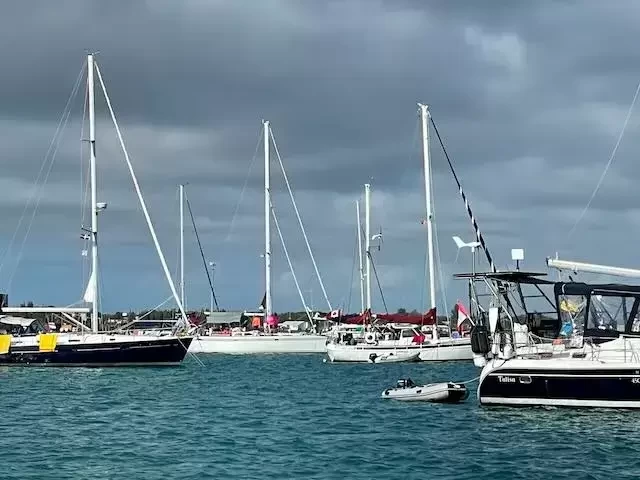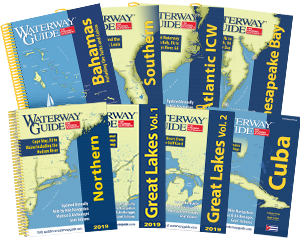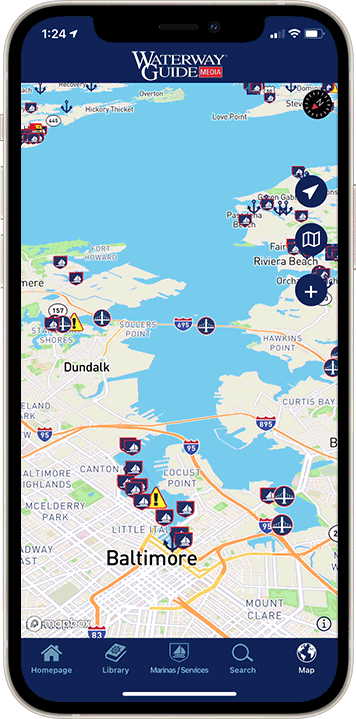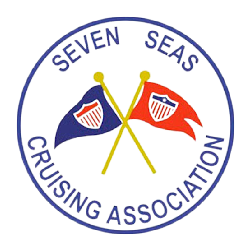Explore Our Latest News & Articles
So, you're dreaming of the boating lifestyle, maybe even considering selling it all and sailing off into the sunset. Early on in the dreaming phase, it will probably strike you that buying a boat, particularly a big cruising boat, is a complicated process. It is — unless you have some previous experience and boating skills — something that you want to approach carefully and methodically. It's easy for us dreamers to let our hearts take over and let future us worry about the details.
Here's a list of tips to help get you started in the boat buying process. It's not a boat buying guide, because that entirely depends on what sort of vessel you're thinking about. But it is a good starting point.
Understanding the Boat Buying Process

When you look at how to purchase a boat, the process looks more like buying a home than buying a vehicle. If you're in the market for a trailerable fishing boat, it's not too much different than buying a car. But the bigger and more complex the boat, the more of an ordeal the purchase process becomes.
You should note that the process goes the same, whether you're looking at new or pre-owned boats, whether you're buying through a dealer, broker, or on your own.
- Dreaming, researching, and shopping — oh, YachtWorld, how I love thee …
- Getting on boats and comparing — stepping foot on boats to get a real-world idea of their living space and usability
- Making an offer — and hopefully signing a deal!
- Survey and sea trial — the boating world's version of a pre-purchase inspection
- Acceptance of vessel — you own a boat, now what?
7 Tips for the First Time Boat Buyer
Buying your first boat is an exercise in learning that you don't know what you don't know. Many people approach buying a boat like a car or house, but there are some essential differences.
While there are a ton of details to know before buying a boat, you can make your life easier by following a few simple tips. Do a lot of research and try to learn as much as you can before going into it. Here are seven thoughts to help get you started.
Find a boat for your mission, not your dream
We're all guilty of buying into some dream of boating and not looking at the reality of what you'll be doing with the vessel on a daily basis. The boat types we often decide on say a lot about our dreams, often more than what we actually use the boat for.
If you've been Googling "bluewater sailboats," this section applies to you. Don't try to buy the boat to sail to Tahiti now, when you know that dream is a fuzzy idea that's years away. Think about what you'll be doing: Sailing on the Bay, taking the family out for long weekends. Buy the well-built coastal cruiser, which will offer more space, comfort, and performance while you continue to dream of Tahiti. Save the bluewater sailboat for when you've got concrete plans, and the time (and money!) to make the trip.
Similarly, if you want a boat for America's Great Loop, don't buy a sailboat. The Loop is a powerboat adventure, and you'll have far more fun cruising in a nice trawler and selling it after a year than you will modifying and making do with a bulky sailboat with poor visibility.
Budget realistically — maintenance costs and everything else, too
To make an educated decision when it comes to budgeting, you've got to have a realistic idea of how much owning the boat will cost. That means a ton of research, finding out things like:
- How much boats like the one you're looking at usually sell for (not asking price)
- For a boat loan or cash deal, what financing down payment and monthly payment amounts should be considered?
- How much will outfitting the boat cost?
- How much will it cost to run the boat per hour, and how many hours per year will you
- Where you'll keep it, how much slip rental fees or moorings are (or if they're even available — there's a length waitlist in some places if you want a liveaboard marina)
- Where can you haul out for maintenance, and how much are the haul, launch, and storage costs
- Winter storage availability and rates if you won't be using the boat year-round
- How much maintenance you'll do yourself versus hiring folks, and how much the engine annual or 100-hour oil changes and maintenance costs will be
Work with an insurance broker early on — it has more effect on boat size than you might realize!

It's not a sure thing that you will be able to find insurance for that boat!
Insurance is one of the biggest hurdles you'll face when buying a big cruising boat, especially if you haven't owned smaller boats previously. Insurance underwriters have toughened up in recent years, and they want to see that you have boating experience before they'll let you take out a 30 or 40-foot cruising boat on your own. Yes, it will be expensive to get, but in some cases, you might not be able to get it regardless of what you do. So you must find out the details before you go signing contracts and making deals.
There are several things you can do to improve your odds here. For one, you can find a boat (age, size, type, and condition) that is the most insurable. Generally, it will be less than 20 years old from a reliable brand and between 30 and 40 feet long (the shorter the better!).
You can also get as much training and sea time on similarly sized boats as possible. Consider taking your state's safe boating course, ASA classes, and doing bareboat charters to build experience, if you can. Getting an official US captains license doesn't usually help, however.
Even if you get the right boat, insurance companies now regularly require you to get a sign-off or endorsement from a training captain on your boat before you can take it out on your own. They may require X number of hours or X days of training before they'll cover you.
Another insurance consideration you'll need to discuss with your underwriter is storm season. If you're on the Atlantic coast, you need to plan for June-November. If you're outside the hurricane belt during those months, insurance is easier to find and less expensive.
Invest in training and get experience
As explained above, insurance is a significant consideration that will affect the type of boat you get. Even if you are experienced, your underwriter might make you hire a training captain for an initial period.
But the more training and experience you can bank before buying a new boat, the better on several fronts. For one thing, you'll know more about boating and know more about what you're looking for. For another, you'll step onto your new boat with more confidence to explore freely.
Once upon a time, boaters could take to the water with little knowledge or training. It's still legal, and you see bonehead boater stunts online all the time. But the problem with being a bonehead — not knowing what you don't know — is that mistakes are stressful and costly. Marinas are now crowded with multi-million dollar yachts, all made of fragile, glossy fiberglass. You can do hundreds of thousands of dollars in damage with the unskillful maneuvering of your $5,000, 40-year-old tank of a sailboat. Like it or not, boating just isn't as laissez-faire as it was a decade ago.
Having some training, such as individual ASA classes or a week-long liveaboard cruising course, will make the whole thing so much less stressful and more enjoyable.
Shop with a buyer's broker if you can
Boat brokers are a mixed lot: Some are utterly useless, and some are invaluable, saving you time and money. The trick is finding the right one.
Like real estate agents, brokers take a cut (usually 10%) from the total sales price on the seller's end. Also like real estate agents, they prefer when you call the number on the listing and work directly with them, because they'll receive the entire 10% themselves. And, also like real estate agents, even if you do that, they're still working for the sellers — not you. If that's how it's gone down, don't expect honest answers to your questions or very much help in your decision-making process, because they're just trying to get you to buy that boat.
If you engage a broker as a buyer's broker, then they are working for you. You might have to negotiate a special fee or some arrangements to ensure that it's worth their time, but if you can get one to agree to it, they can be incredibly valuable to you as a first-time buyer.
Try to seek out brokers who specialize in the boat you want: Don't hire a power yacht broker to help you shop for a sailing catamaran — they just don't know what they're looking at. Find the sailing catamaran guy and work with them.
Learn how to conduct a pre-survey before making an offer
The boat shopping process is especially difficult for first-timers. It's easy to fall in love with the space and layout of a boat and overlook flaws that would be obvious to an experienced boater. It's also easy to fall in love with a dream of what a boat could be and look past the amount of work and money it might need to get this particular boat to that point.
This is where the self-survey comes in. Instead of just browsing, you want to conduct a comprehensive inspection of each vessel you see. No, you're not an accredited surveyor — but you can learn the sorts of things they will look for and go looking for them yourself. Don't hesitate to ask for a second viewing if you need to go back and reevaluate things.
The goal is to determine if the boat you're considering is worth surveying. The cost of the survey, including the surveyor's time, the haul out at the boatyard, and the captain for the sea trial, is the buyer's responsibility. In the end, it's easily $2,000 for a moderately sized cruising boat.
In other words, the more analytical you can be when looking at boats, the better.
Make the most of your survey and sea trial
When it comes to the actual survey, you need to take charge and ask a lot of questions. Remember, the surveyor works for you, and survey day is the only time you'll get to pin them down and ask them for details. Don't annoy them, but follow up with them and ask about anything you noticed during your pre-survey. If they point things out, ask follow-up questions. Ask how much things might cost to repair, how big a deal it is, and what you should be worried about.
In the end, the surveyor is only an inspector — they won't know all the answers. But they are industry professionals who should know enough to set you on the right path.
The survey isn't designed to give you a yes or no answer to buying the boat; it's just supposed to supply you with the facts you need to make the decision and the facts you need to renegotiate the deal, if necessary. To that end, you need as much information as you can get from your surveyor to help you weigh your decision.
Have an exit strategy

Of all of the tips when buying a boat, this is the most important: always have an exit strategy. What does that mean? It means having a plan for what happens when you want to be done with the boat. It's super important if you're getting a boat loan. It's also essential if your plan involves selling everything and sailing away into the sunset. Ask yourself honestly, what is your plan if it doesn't go like that, and you need to return to land life?
First, a brutal truth: Most people live the liveaboard, full-time boating and cruising lifestyle for two or three years before returning to the everyday world. In some cases, that was always the plan, and in other cases, that was just as long as they could make it work. There are plenty of people who have been living aboard for decades, but they are the exception rather than the rule.
You may think that your exit strategy is simple: Throw a for sale sign on the boat and move on. But many used boats sit on the market for months (sometimes well over a year) before they finally sell. There are many more used boats than there are buyers in the world. During that time, you'll still need to maintain the vessel and keep it somewhere. The costs pile up, eating into the money you have available for other things, like getting an apartment or moving somewhere else. If you're paying a big boat loan, you might be stuck.
Part of your exit strategy must also be upkeep and condition: A boat that shows well sells before a boat that doesn't. Boats that are "turn-key" or "ready to cruise" will always sell quicker and at a better price than neglected project boats.
One of the biggest things you can do to avoid future problems is to purchase a boat that a lot of people want to buy. Remember, just because you wanted to buy it doesn't mean it will sell easily on the market or hold its value. A buyer's broker is a great resource here because they can advise you on what years, makes, and models are in demand and which ones to avoid.
Curious to learn more?
This article was written by Matt Claiborne, co-founder of Boat Life Academy alongside his wife Lucy. Together, they've created a text-based course called Buying Your First Cruising Boat to help first-time buyers navigate the research and decision-making process.
If you're exploring the idea of boat ownership, their course offers practical guidance on budgeting, conducting a pre-survey, finding a buyer's broker, and more—whether you're eyeing a sailboat or powerboat. You can preview the first section for free at Boat Life Academy.













